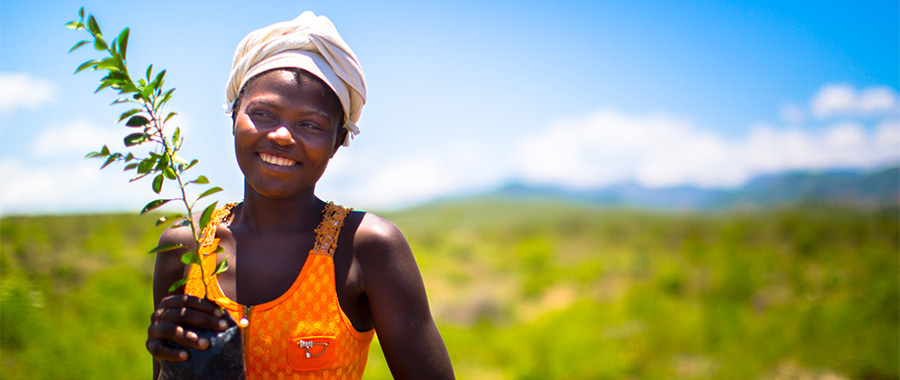Baha’i teachings encompass a vision of human endeavor that integrates the spiritual and the material, a synthesis that is notably reflective in the discourse surrounding agriculture and smallholder farms. In exploring the concept of the “Smallholder Farm Revolution,” one can perceive this agricultural renaissance not merely as an economic phenomenon but rather as a profound manifestation of the Baha’i principles aimed at fostering harmonious coexistence and sustainable development.
Much like the delicate balance of an ecosystem, the operational dynamics of smallholder farms exemplify the interconnectedness promoted within Baha’i teachings. Each farm exists not in isolation, but as part of a broader community tapestry, illustrating the Baha’i principle of unity in diversity. Here, farmers embody the role of both custodians and innovators, cultivating not just crops but also the very essence of communal resilience.
At the heart of the Smallholder Farm Revolution lies the principle of sustainability. The Baha’i perspective advocates for stewardship of the Earth, a sentiment echoed in the practices adopted by smallholder farmers. These farmers employ techniques such as agroecology, which prioritizes ecological balance over mere productivity. The adoption of such methods resonates with the Baha’i teaching that emphasizes the interconnectedness of all creation, fostering an agricultural approach that is both environmentally sound and conducive to the well-being of future generations.
Metaphorically, one might view smallholder farms as grains of sand on a vast beach, each grain representing individual contributions to the collective shoreline of society. Just as each grain is integral to the formation of the beach, each smallholder farmer plays a crucial role in the larger agricultural landscape. The Baha’i teachings advocate for the recognition of these often-overlooked individuals, fostering an environment where their contributions are valued and their voices heard. This paradigm shift from large-scale monoculture to diversified smallholding not only enhances food security but also strengthens the socioeconomic fabric of communities.
The revolution in smallholder farming is also a testament to the Baha’i principle of education. Baha’is regard education as a cornerstone of individual and collective advancement. The emergence of decentralized farming systems encourages farmers to be lifelong learners, sharing knowledge and techniques that enable them to adapt to ever-changing environmental conditions. This emphasis on continuous learning aligns harmoniously with the Baha’i view that knowledge is expansive and should be pursued relentlessly. As communities engage in collective learning, the agricultural practices evolve, drawing upon local wisdom and advanced scientific knowledge alike.
Moreover, the Smallholder Farm Revolution encapsulates the Baha’i emphasis on social equity. Historically marginalized, smallholder farmers often find themselves on the periphery of the agricultural discourse. Yet, the teachings promote the idea that all individuals are endowed with inherent dignity and capacity for nurturing the world. Enabling smallholder farmers through access to resources, markets, and support networks reflects a commitment to dismantling systemic inequities. By elevating the status of these farmers, society recognizes their pivotal role in feeding the world and addressing hunger, fundamentally reshaping the agricultural landscape.
Community engagement emerges as another vital layer in the Smallholder Farm Revolution, as espoused by Baha’i principles. Here, the notion of collaborative action is paramount. Rather than operating in silos, smallholders often form cooperatives or networks that leverage shared resources and collective knowledge. This collectivist approach resonates with the Baha’i emphasis on unity and collaboration, positioning these farmers as agents of change who work together to achieve common goals. These interconnected networks not only enhance productivity but also foster social cohesion, transforming agrarian practices into platforms for community building and solidarity.
The intrinsic link between spirituality and agricultural practice is also a central theme within the Baha’i perspective. The act of farming transcends mere labor; it becomes a form of worship and a means of spiritual expression. As farmers tend to their crops, they engage in an intimate dialogue with the environment, embodying gratitude and reverence for the creation. This spiritual connection revitalizes their work, enabling them to perceive farming as a vocation imbued with purpose and meaning. Such a profound acknowledgment of the spiritual dimension of agriculture aligns perfectly with the Baha’i doctrine that all work performed in the spirit of service is ultimately an act of worship.
As we contemplate the future of the Smallholder Farm Revolution, it becomes evident that these farms serve as microcosms for broader societal transformation. By promoting sustainable practices, social equity, and cooperative engagement, smallholder farms illustrate the practical application of Baha’i teachings in addressing some of the most pressing challenges of our time. They embody a vision of agriculture where economic viability harmonizes with social and spiritual upliftment, where the production of food nurtures not only bodies but also souls.
In conclusion, the intersection of Baha’i teachings and the Smallholder Farm Revolution offers profound insights into how agricultural practices can reflect and promote a more equitable and united world. As society looks to innovate and transform its agricultural landscape, the principles of sustainability, education, social equity, community engagement, and spirituality illuminate the path forward. These farms serve as sanctuaries of hope, reminding humanity of its obligation to nurture both the Earth and its inhabitants. As we marvel at the resilience of smallholder farmers, we find a poignant reminder that true revolutions often begin in the heart of the community, cultivated by dedicated hands and inspired minds.
